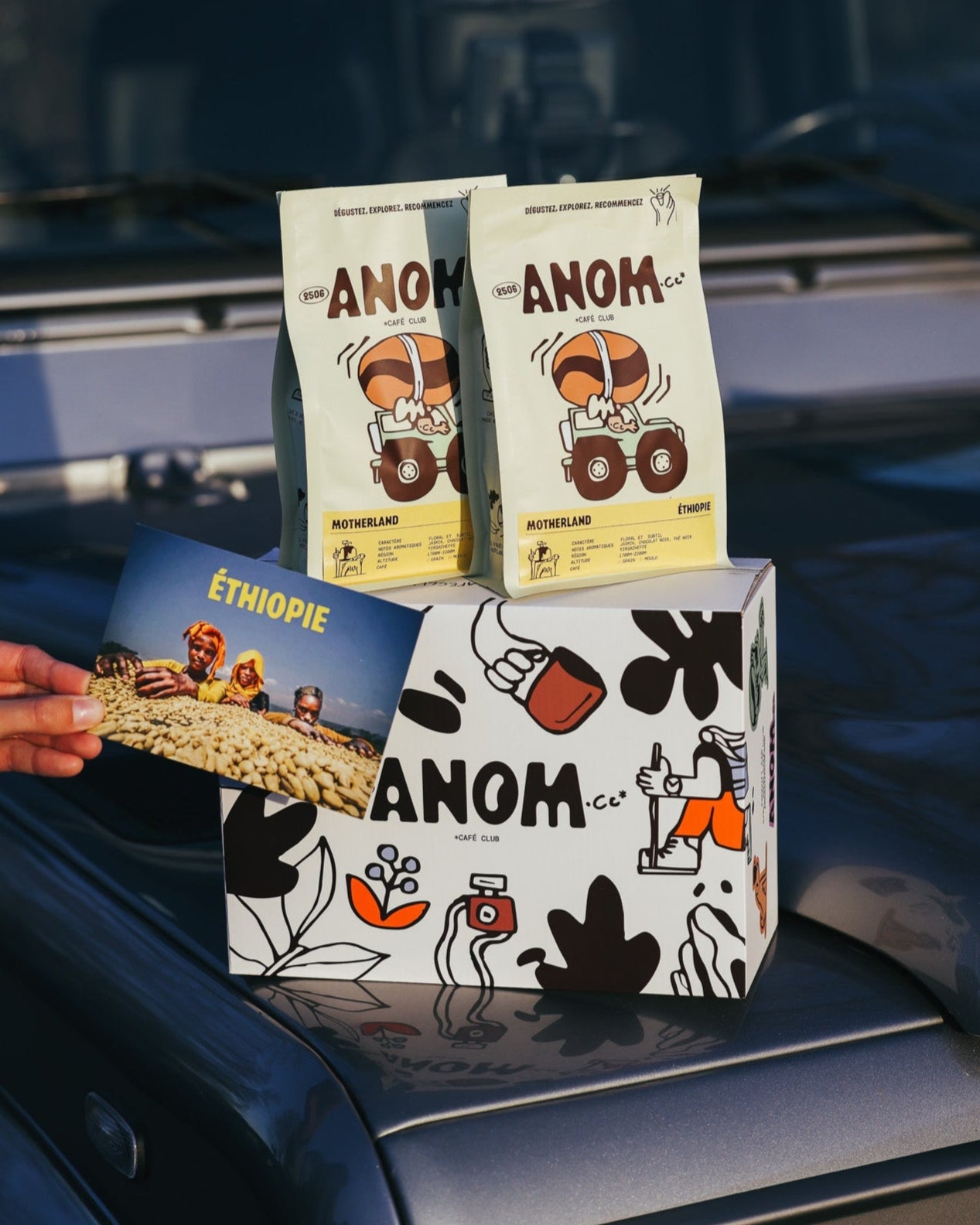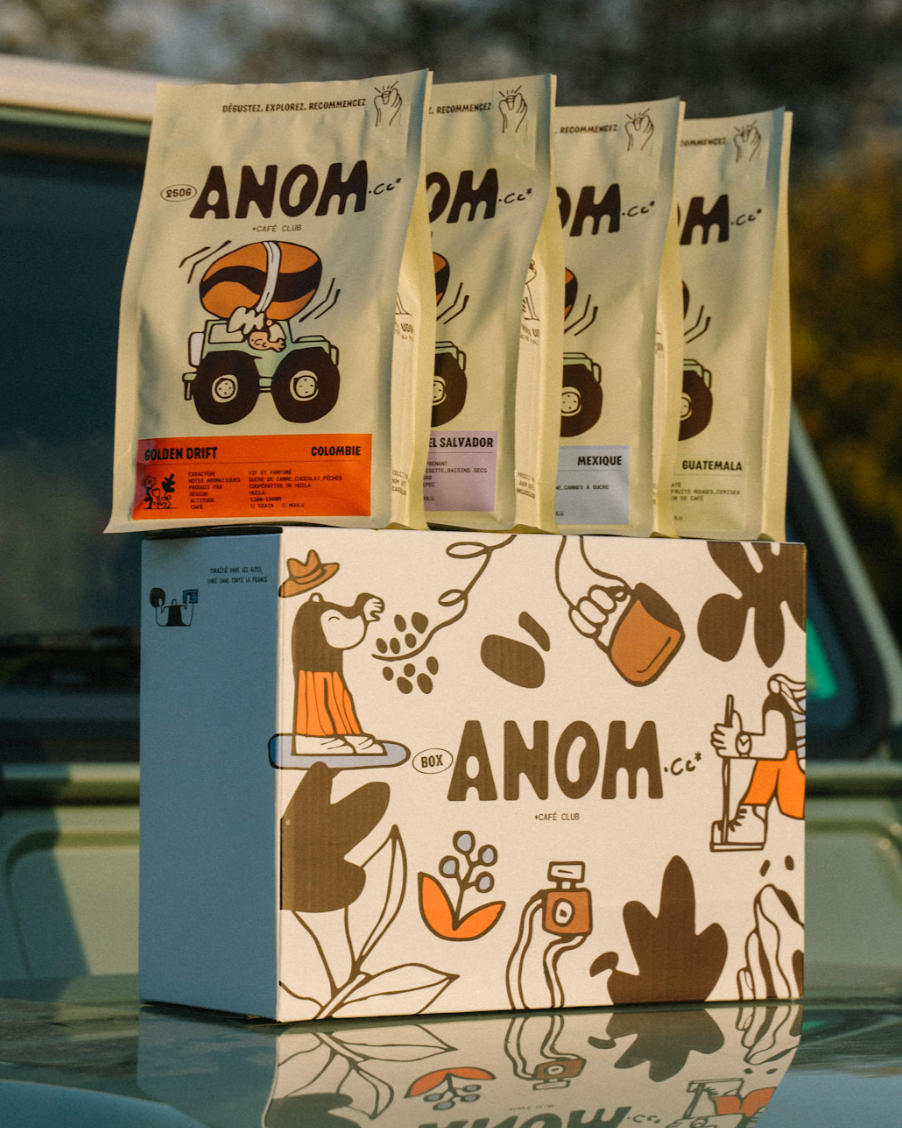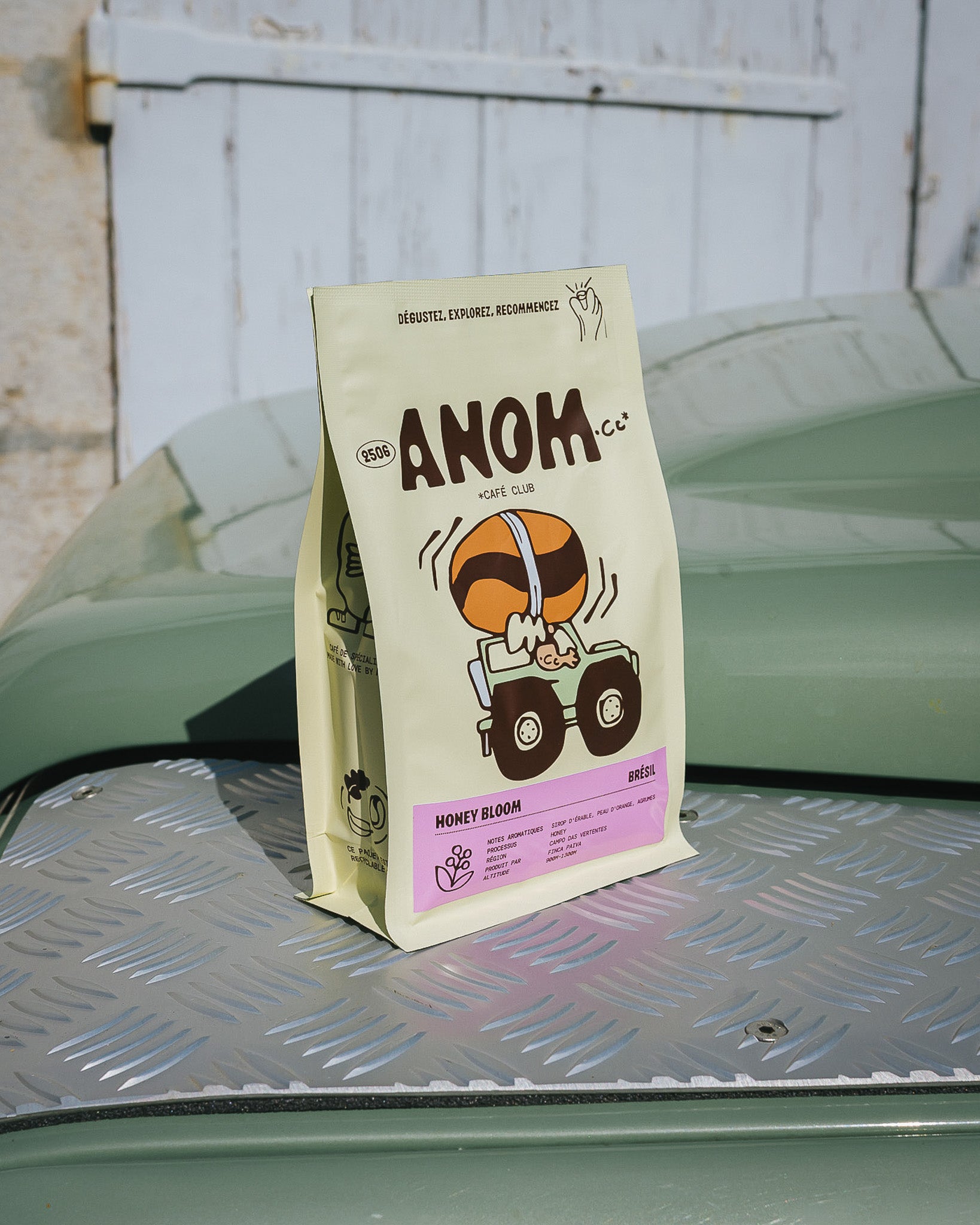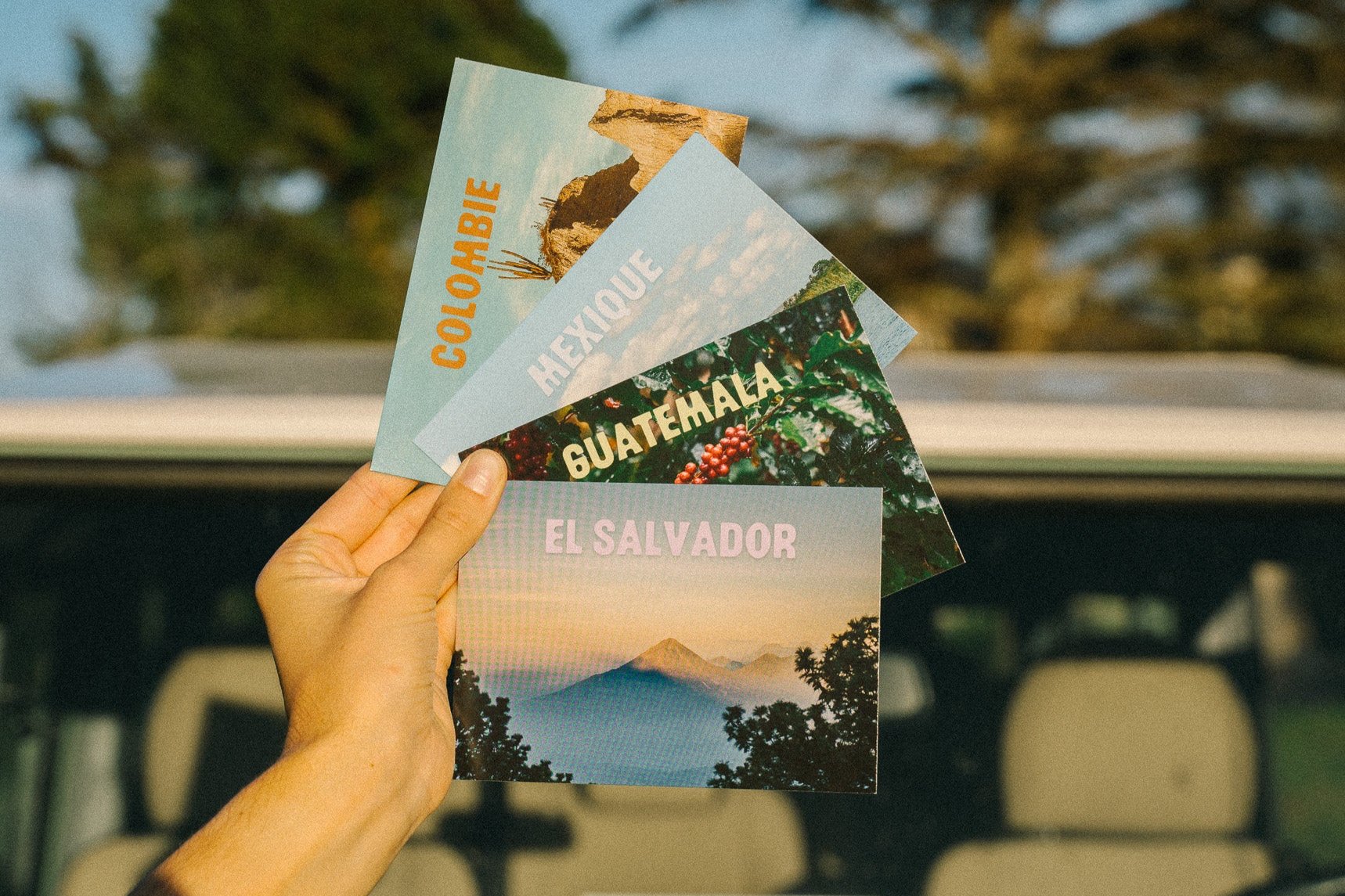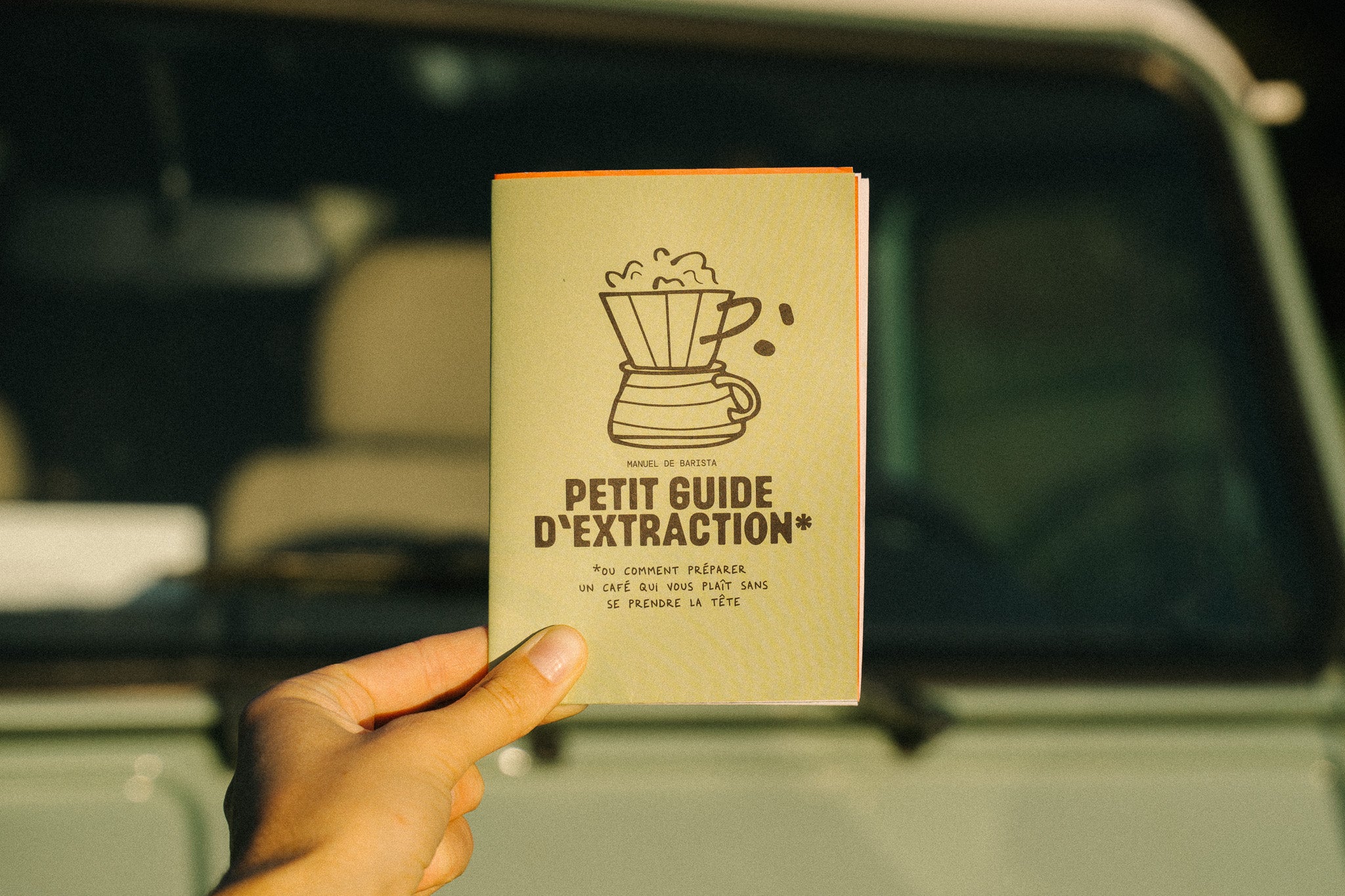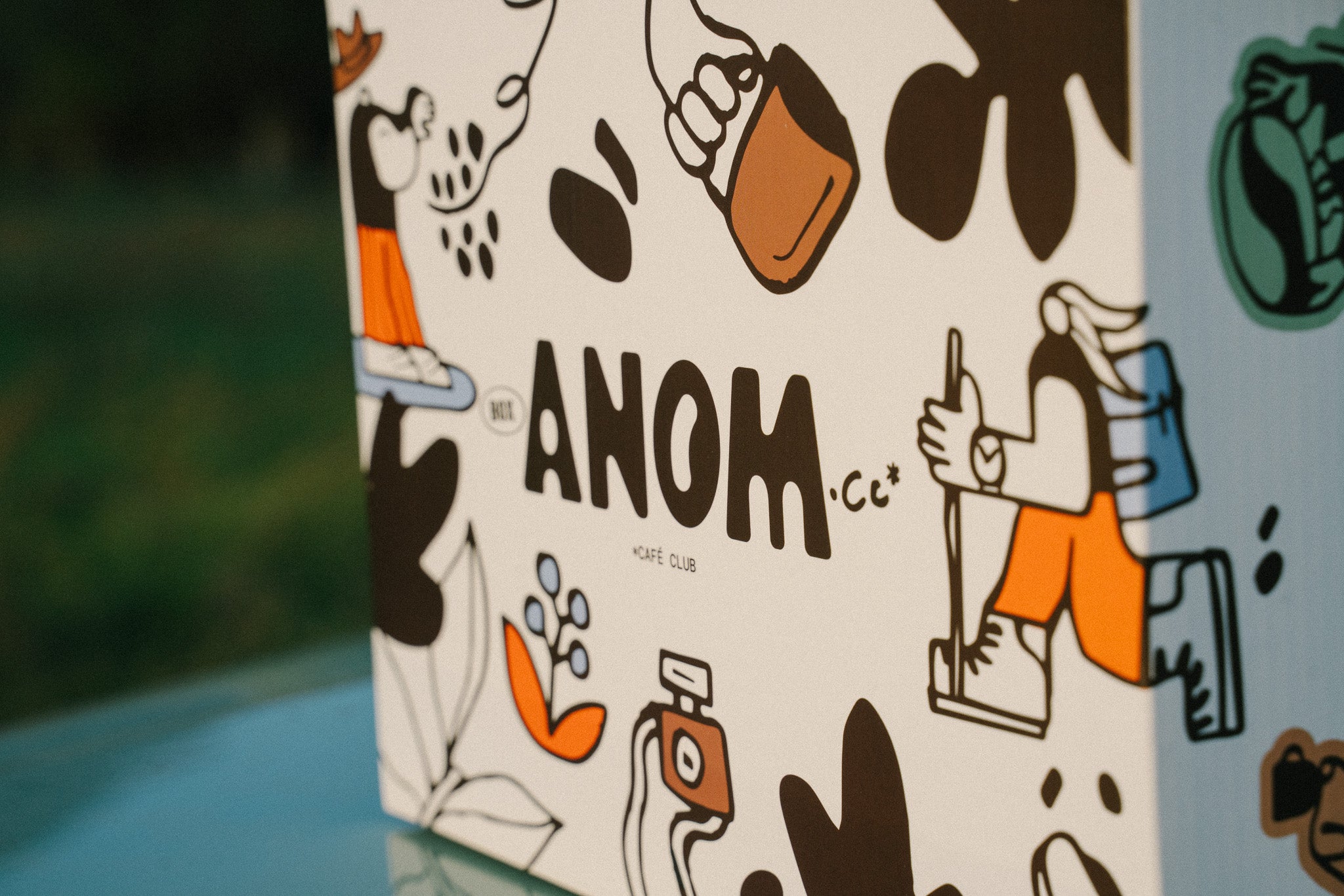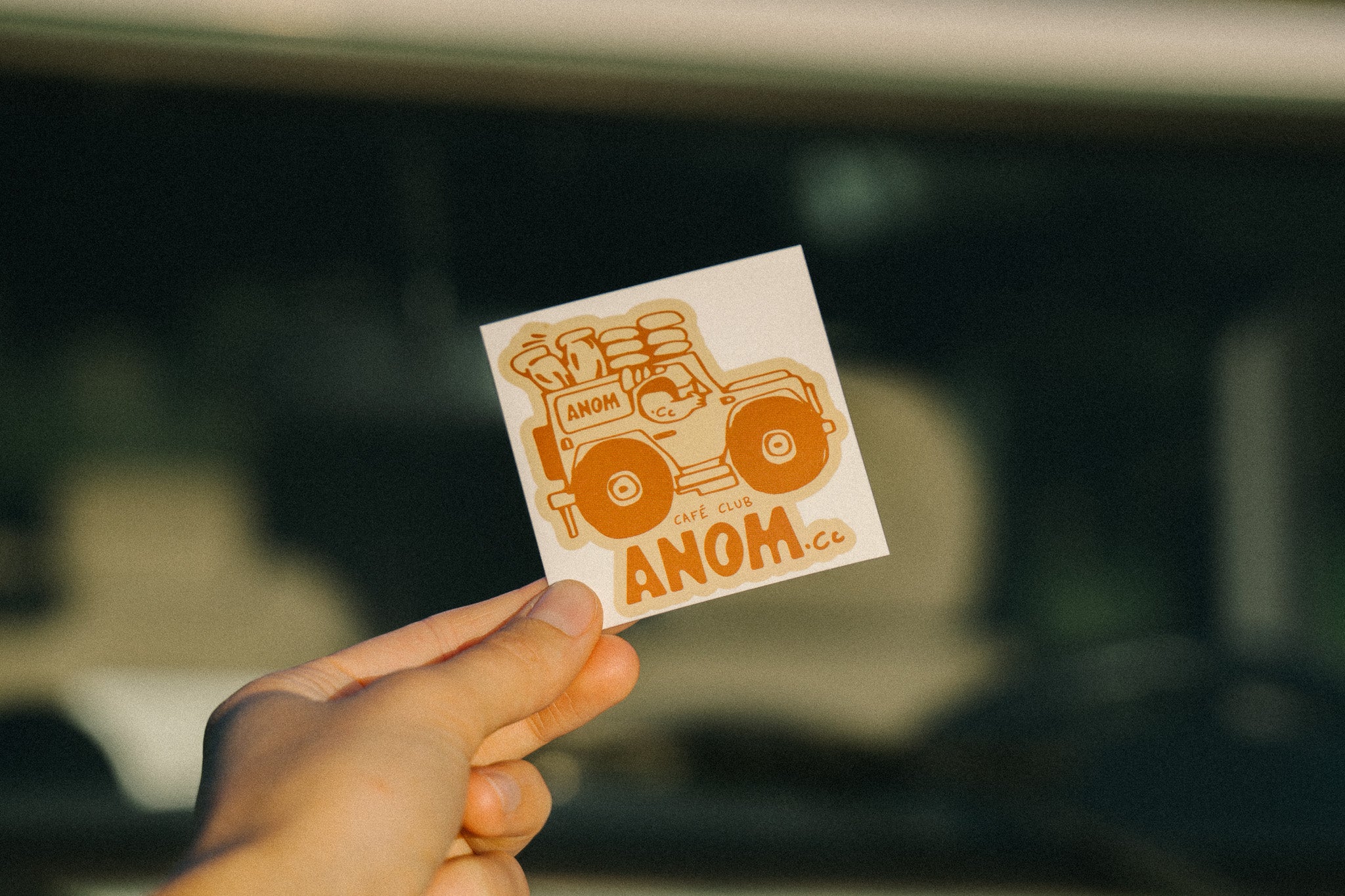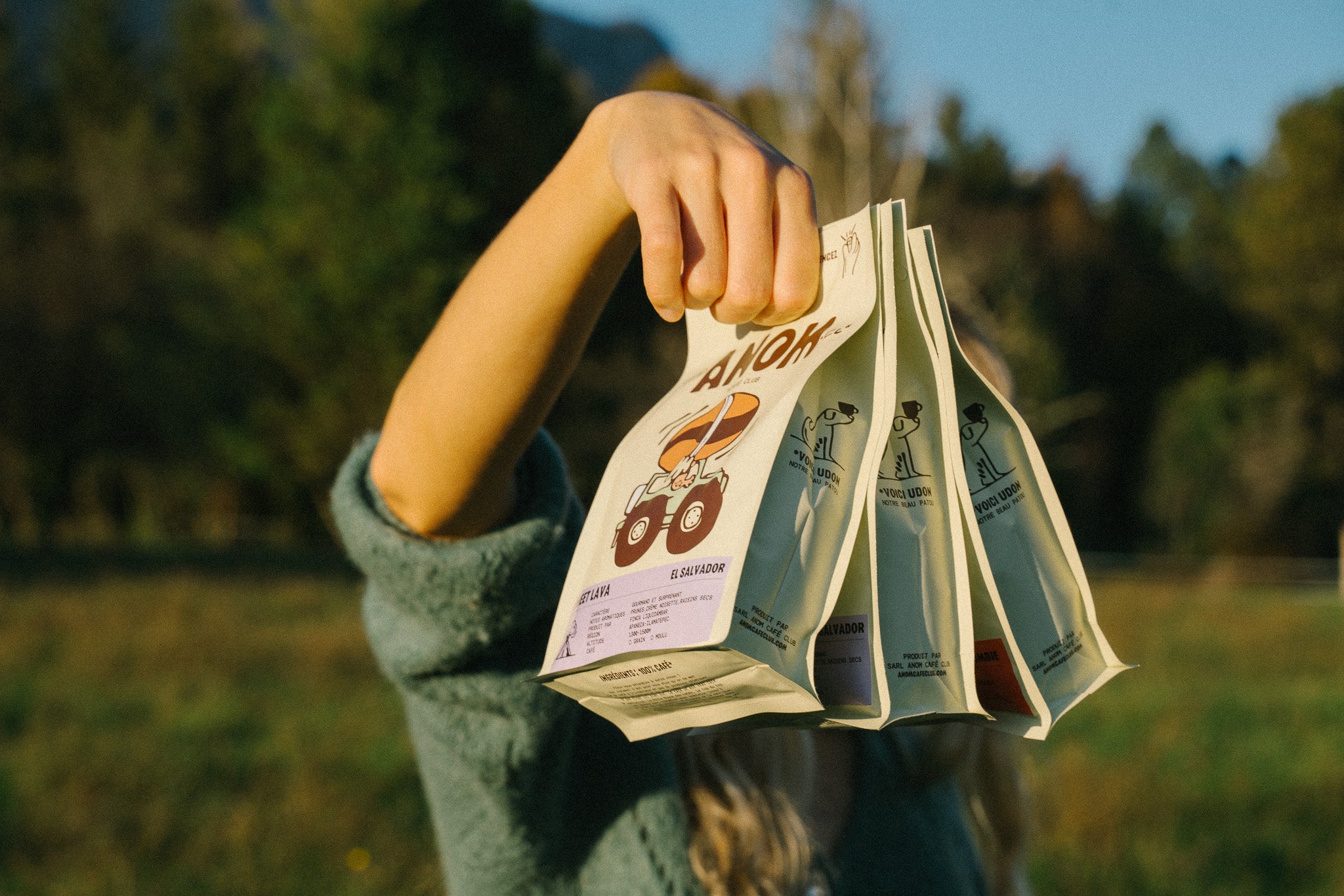Honey Bloom
Countries:
Brazil
Profile:
Suave et chocolaté
Small (250g)
€11,90
Large (750g)
€33,50
Grinding: ?
€11,90
Le Brésil, c’est la terre des grands horizons et des cafés légendaires.
Au cœur de Campo das Vertentes, un collectif visionnaire a su transformer un rêve en réalité : celui de produire des cafés de spécialité qui allient tradition, innovation et engagement social. De ce terroir vibrant est né Honey Bloom, un café travaillé en process Honey, au profil chocolaté et raffiné.
Le process Honey est un savoir-faire unique : après récolte, les cerises de café sont dépulpées mais une partie de leur mucilage sucré est conservée autour du grain. Le séchage se fait ensuite au soleil, lentement, permettant aux sucres naturels de pénétrer le grain. Le résultat : une tasse ronde et généreuse, où la douceur du miel se mêle à une belle complexité fruitée.
CARTE D'IDENTITÉ
Caractère : Doux et chocolaté
Notes Aromatiques : Sirop d’érable, fruits déshydratés, agrumes
Pays : Brésil
Région : Campo das Vertentes
Process : Honey
Note SCA : 85
Altitude : 900–1 300 m
Variété : Catuai jaune, Catucai jaune, Topázio
You can choose between 2 delivery options:
1/ Point relais, which takes around 2/3 days and lets you pick up your parcel wherever you want, without the delivery man calling you when you're in the middle of a meeting. We've reduced this option to €3, for all orders.
2/ Home delivery, classic but efficient because you don't have to do a thing. Rates are detailed on the payment page, and delivery times range from 2 to 4 days, depending on where you live.
We adapt the grind size to your machine.
If you have a grinder or if your machine has one, choose:
.
If you can't find your machine in the list, contact us here, we'll be delighted to help.
The grind is the size at which we grind your coffee. It's important because it's what guarantees a successful extraction and a top-notch experience!
The watchword: RE-CY-CLABLE
From tins to coffee packs to postcards, everything is recyclable.
Speaking of the environment, you won't end up with any chemicals, because our growers simply don't use any in their cultivation.
